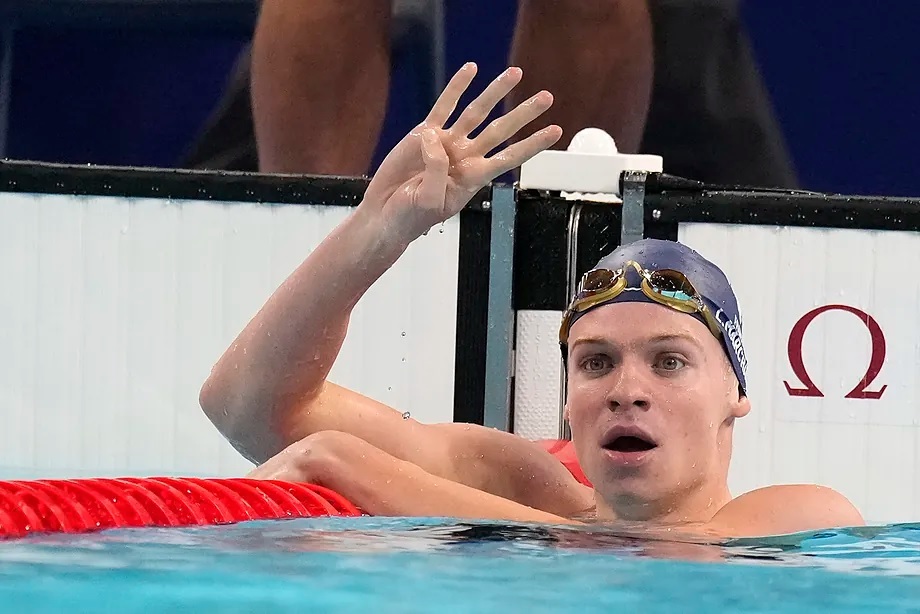The emergence of Léon Marchand in the Olympic world has been so brutal and undeniable that it would seem exaggerated to say that, in just one week, this 22-year-old Frenchman has entered the swimming Olympus. In reality, it is true, because the four gold medals he leaves Paris with as a local idol and star of these Games, celebrated for his breakthrough by none other than Emmanuel Macron himself in the stands at La Défense, are comparable to the feats of some of the greats in history, such as Michael Phelps, Mark Spitz, Ian Thorpe, or Alexander Popov.
It is true that the achievements of the aforementioned are greater because they competed in several Olympic Games, but it is also true that all of them amassed medals in relay events, something that Marchand has not done in Paris. France, which is thrilled with the return to swimming and the podium of Florent Manaudou at 33 years old, does not have a winning relay team to offer him. Collectively, these are not their best times, despite Marchand's success, unlike the exemplary Italian swimming team. Spain should take note.
When Phelps won eight gold medals in Beijing 2008 or Spitz seven in Munich 1972, three and two, respectively, came in relays and five were individual. Marchand has started with four victories without anyone's help, the four wins he displayed in his hand after reaching the final goal in the 200 individual medley, at a world record pace until the last three strokes. He will go far. More victories will come.
Marchand confirmed in his latest performance that he is a colossal swimmer in individual medleys, something that brings him closer to Phelps, with whom he shares coach Bob Bowman. What sets him apart from other great swimmers in history is that he does not tackle individual freestyle events, a territory to explore alongside Bowman. The final 50 meters of the medley, the freestyle leg, point to a very high level. The future will tell. However, he has dominated the breaststroke in an astonishing way. A style where more physically compact swimmers usually excel. Marchand is lanky, with a pubescent body, which favors his underwater swimming, essential for making a difference.
The Frenchman has swum the 200 and 400 individual medleys, the 200 breaststroke, and the 200 butterfly faster than anyone in Olympic Games history. Olympic records may seem devalued due to some crazy years, between polyurethane swimsuits, like the ones Phelps used, and textile suits, but what this 22-year-old swimmer has achieved is remarkable. He has swum faster than Phelps in Beijing. In the 400 individual medley, he already took the record from Phelps (4:02.50). In the 200 medley, he was on track to break it at the three turns. To beat it, he lacked competition. He finished in 1:54.06, just six hundredths off Ryan Lochte's record (1:54.00), an impressive swimmer who had the misfortune of coinciding with the Phelps era. He was always the eternal second. The swimming Olympus should also have a place reserved for him, despite being regularly deprived of gold, except in relays.
The next question is how far Marchand can go after Paris, where he had uncommon support in swimming, with a crowd gasping at each of his strokes. Paris needed a hero and found one in the young man from Toulouse. The responsibility, however, was also a burden at the Games in his country, something that Thorpe experienced in Sydney, despite the medals. Marchand, on the other hand, has shown exceptional focus. Not even the challenge of the 200 butterfly against Kristof Milak, better in the heats, semifinals, and even the first 150 meters of the final, could sink him. He emerged as a killer whale, fierce and voracious, to transform himself outside the pool, with his sweet and boyish face, and the hair of a Greek god. The Olympus is his place.
